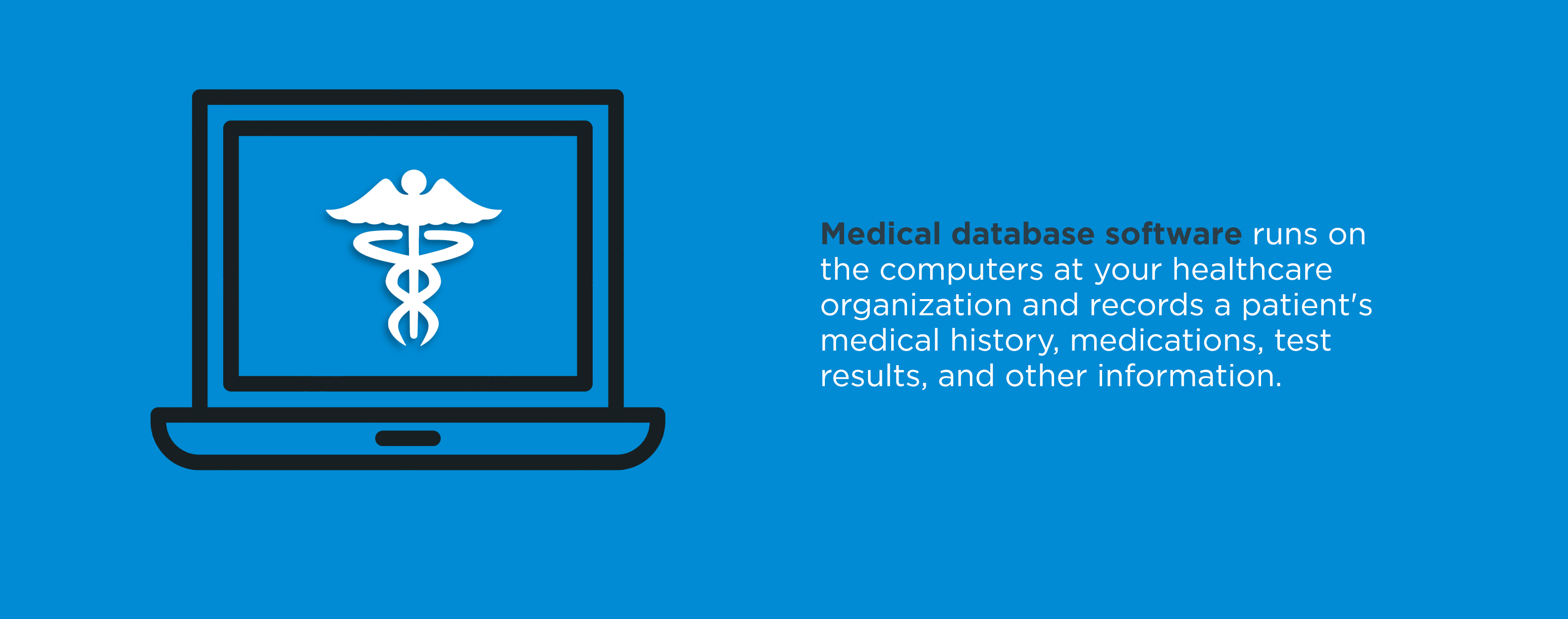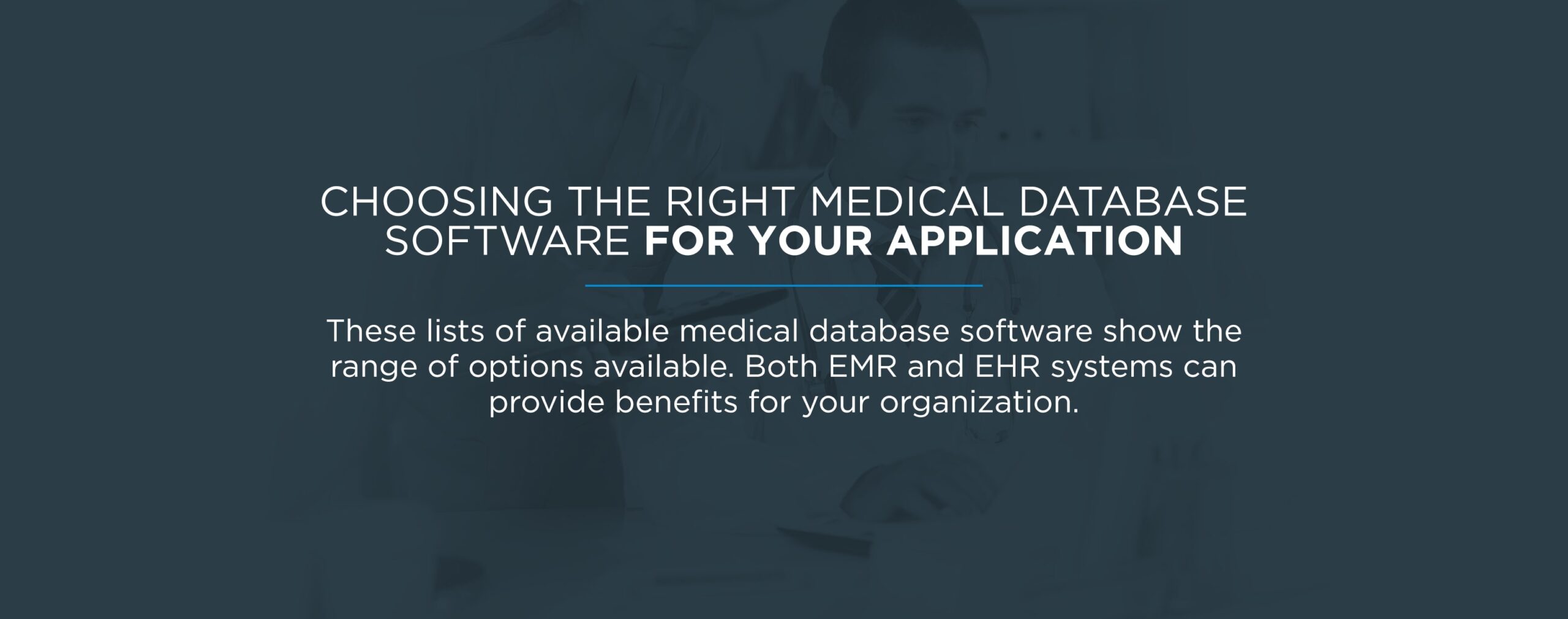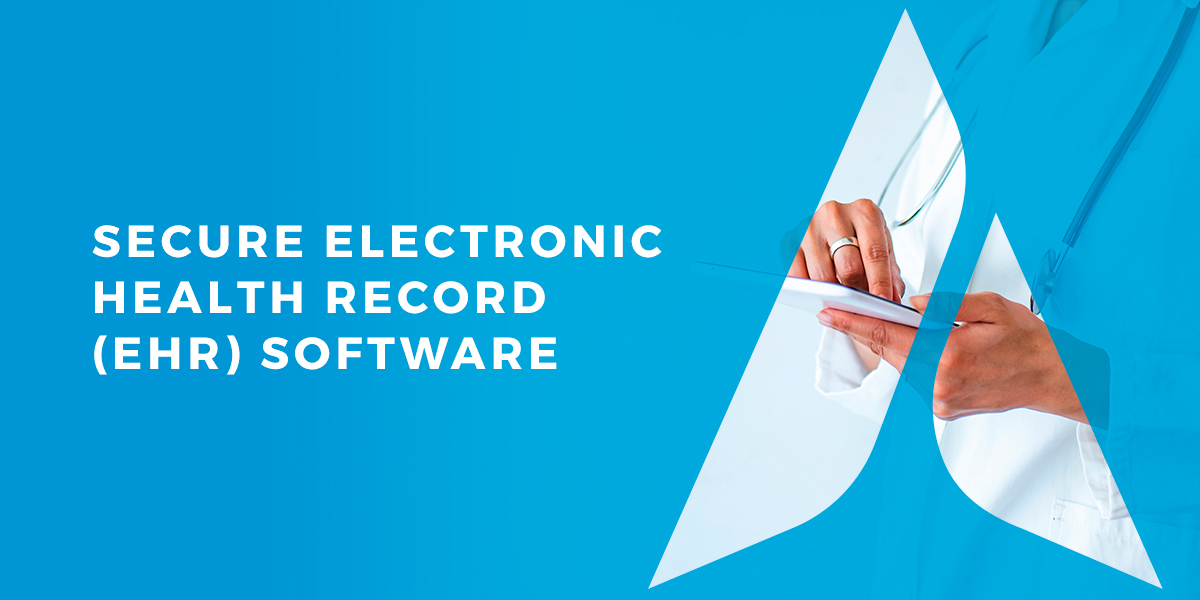Secure Medical Database Software
Medical database software runs on the computers at your healthcare organization and records a patient’s medical history, medications, test results, and other information. This software can help an office stay organized and easily access patient data.
Electronic Medical Records (EMRs) vs. Electronic Health Records (EHRs)
These two terms sound similar, but they are not the same thing. However, some businesses have been known to use them interchangeably. The main difference between EMRs and EHRs is who uses them. Physicians use EMR systems within their practice, and the software essentially includes only the data from that singular location.

An EHR system, on the other hand, is typically more comprehensive. The “health” part covers the care a patient receives across multiple locations. As a result, this type of medical database software is more accessible between departments and branches within a healthcare system.
EMR
With these definitions cleared up, we can discuss the positives and negatives of each system. An EMR is still a digital version of a patient’s medical record. Thus, EMRs have the benefits of being accessible on a computer as a digital file. However, EMRs are usually limited to a single practice. The care a patient receives in another location will likely not be readily available on your system, which can cause challenges.
You may choose to use an EMR system for numerous reasons, including cost and the size of your operations. Some of the most common EMR systems include:
- athenaOne
- RXNT
- AdvancedMD EHR
- DrChrono
- Kareo Clinical
- NextGen Healthcare
- PrognoCIS
- Compulink Healthcare Solutions
- Elation
- ChartLogic EHR
- PatientNOW
- CareCloud
- Greenway Health
EHR
EHRs also come with their own sets of pros and cons. One of the positives is that this software works well between different units in a patient’s healthcare system. Each physician or medical provider who sees the individual can access and upload data into an EHR system. However, this system can be pricier than others.
Some of the most common EHR systems are:
- Epic
- Allscripts
- CureMD
- eClinicalWorks
- GE Healthcare
- Cerner
- Practice Fusion
- athenahealth
- Kareo

Choosing the Right Medical Database Software for Your Application
These lists of available medical database software show the range of options available. Both EMR and EHR systems can provide benefits for your organization. Choosing between the two is a business-related call, though there are things you should take into consideration.
An EMR will likely suffice if you’re a small practice that mainly wants to digitize your patient’s medical charts. If you want to share data between practices and cover a more comprehensive set of health information, choose an EHR.
Work With Agio for Healthcare Applications
Our team can help supply your healthcare organization with top medical database software. Learn more about our Healthcare 360° program today.
Share post
Featured Posts
Connect with us.
Need a solution? Want to partner with us? Please complete the fields below to connect with a member of our team.



